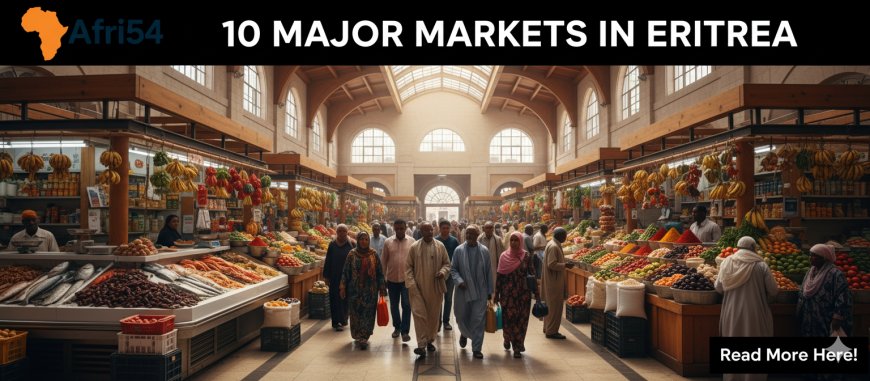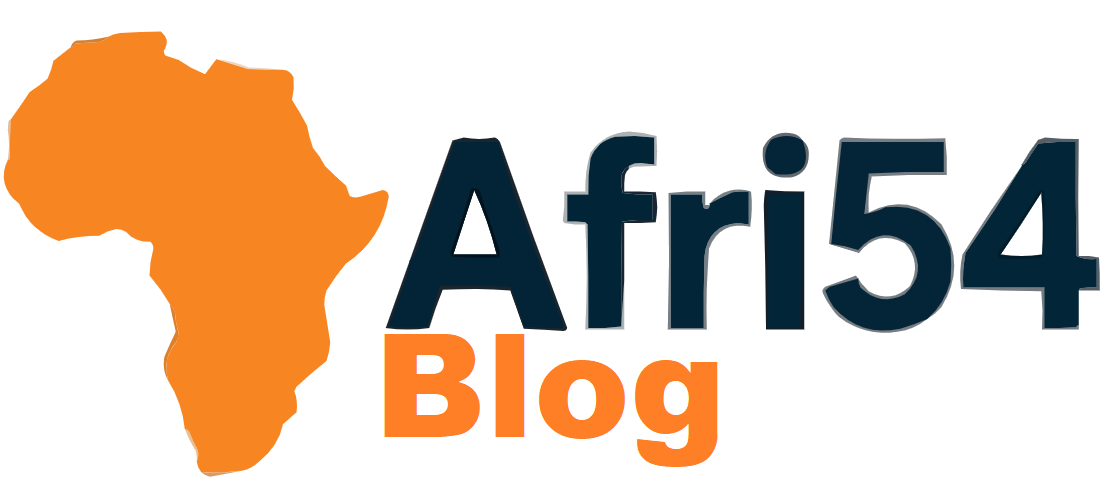10 Major Markets in Eritrea: A Glimpse into East African Trade and Culture
Explore the 10 major markets in Eritrea, from Asmara's vibrant Central Market and the unique Medeber to the historic Keren Market and coastal Massawa. Discover local produce, unique crafts, and the resilient spirit of Eritrean trade and culture.

Eritrea, a nation on the Red Sea coast of East Africa, possesses a distinctive market culture shaped by its history, diverse ethnic groups, and strategic location. While often described as "closed," its markets are vibrant, essential centers of daily life, offering a unique window into the country's economic activities, social interactions, and cultural heritage. These markets blend traditional practices with the necessities of modern living, reflecting the resilience and ingenuity of the Eritrean people.
Eritrean markets are characterized by their lively atmosphere, the array of products ranging from local agricultural produce and livestock to traditional handicrafts, textiles, and limited imported goods. They serve as crucial meeting points for communities, where news is exchanged, and the pulse of local life can be truly felt. Whether you are searching for unique spices, traditional garments, or simply wish to observe the daily flow of commerce, these markets offer an authentic and engaging experience.
Let's explore 10 of the major markets that play a significant role in the commercial landscape and daily lives across Eritrea:
1. Asmara Market (Asmara)
The largest and most important market in Eritrea, located in the capital city of Asmara. This sprawling market is a vibrant hub where you can find an extensive range of fresh fruits, vegetables, meat, spices (including the famous berbere), coffee, traditional clothing (like zuria and gabi), household goods, and handicrafts. It's a central point for both local commerce and a reflection of Asmara's unique blend of Eritrean and Italian influences.
2. Medeber Market (Asmara)
Medeber is a fascinating and unique market in Asmara, distinct for its recycling and artisan workshops. Here, skilled craftsmen transform old tires into sandals, scrap metal into tools, and discarded materials into new products. It's a testament to Eritrean resourcefulness and offers a different kind of shopping experience focused on sustainability and craftsmanship.
3. Massawa Fish Market (Massawa)
As Eritrea's main port city on the Red Sea, Massawa's Fish Market is a crucial and lively hub. Each morning, local fishermen bring in their fresh catches, offering a wide variety of seafood, including snapper, tuna, barracuda, and other Red Sea delicacies. It’s a sensory experience and vital for the local economy.
4. Keren Market (Keren)
Keren, a historically significant town, hosts one of Eritrea's most vibrant regional markets, particularly famous for its camel market held on Mondays. Beyond camels, the Keren market offers a wide array of agricultural produce from the surrounding fertile valleys, livestock, spices, and traditional crafts, reflecting the diverse communities of the region.
5. Mendefera Market (Mendefera)
Mendefera, located in the fertile southern highlands, is an important agricultural center. Its market is a key hub for fresh produce, grains, and livestock from the surrounding farming communities. It connects rural producers with urban consumers and plays a vital role in regional food security.
6. Adi Keyh Market (Adi Keyh)
Adi Keyh, another town in the southern region, has a market that is significant for its local trade and its proximity to historical sites. It serves as a central point for agricultural goods and basic necessities for the communities in its vicinity, contributing to the regional economy.
7. Senafe Market (Senafe)
Senafe, close to the Ethiopian border, hosts a market that, when fully active, is important for local exchange and historically for cross-border trade. It offers local produce, livestock, and essential goods, serving as a vital link for communities in this strategic area.
8. Ghinda Market (Ghinda)
Ghinda, a town known for its warmer climate and date palms, has a local market that specializes in its unique agricultural products. Besides dates, you can find a variety of tropical fruits and vegetables grown in the area, offering a different flavor of Eritrean produce.
9. Dekemhare Market (Dekemhare)
Dekemhare, a relatively modern town built by the Italians, has a market that reflects its agricultural surroundings. It's a key market for fresh produce, dairy products, and other foodstuffs, serving as an important provisioning point for the southern highlands.
10. Assab Market (Assab)
Assab, Eritrea's southern port city, has a market that is crucial for its residents and for trade in the southern Red Sea region. It features fresh seafood, a variety of foodstuffs, and goods that arrive via the port, reflecting its role as a maritime gateway.
Have you listed your business on Afri54?
Afri54 exists to solve a fundamental challenge faced by millions of African businesses: lack of visibility. Whether you're an automobile part seller in Lagos, a local attire manufacturer in Kigali, a coffee exporter in Addis Ababa, or a mobile phone supplier in Accra, you deserve to be seen. Join now






















